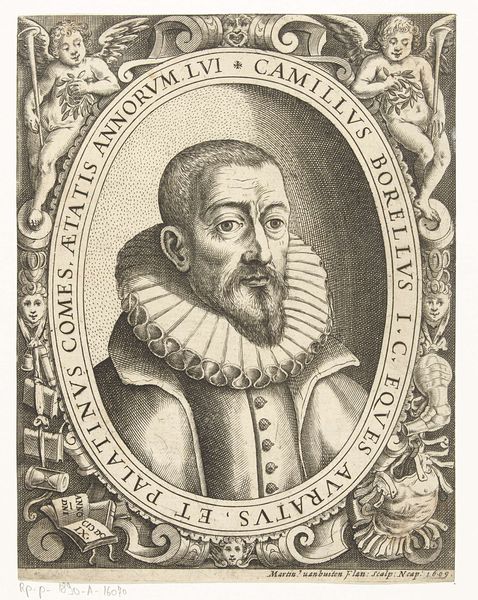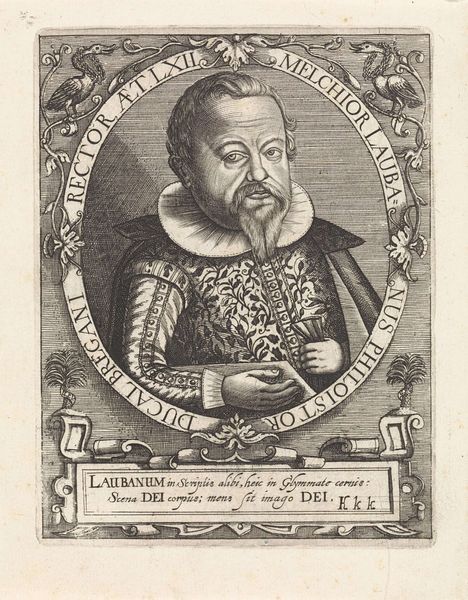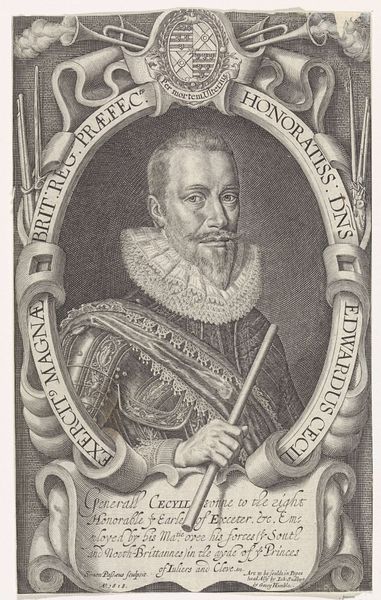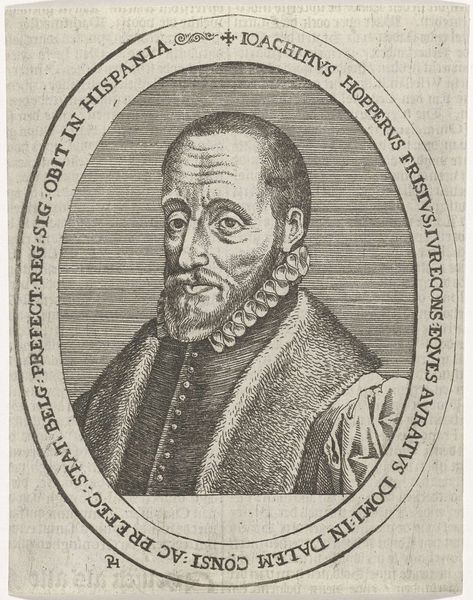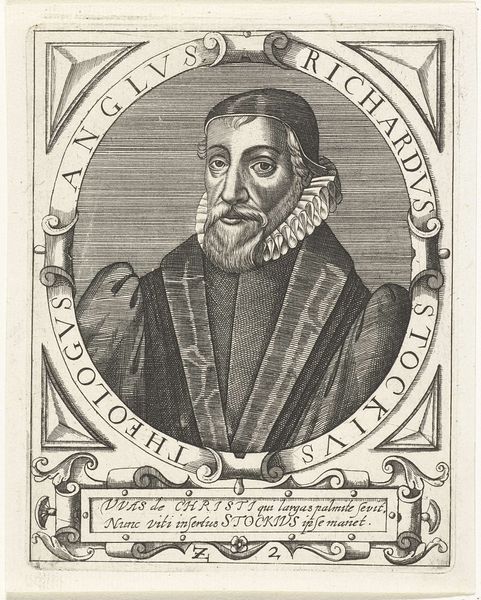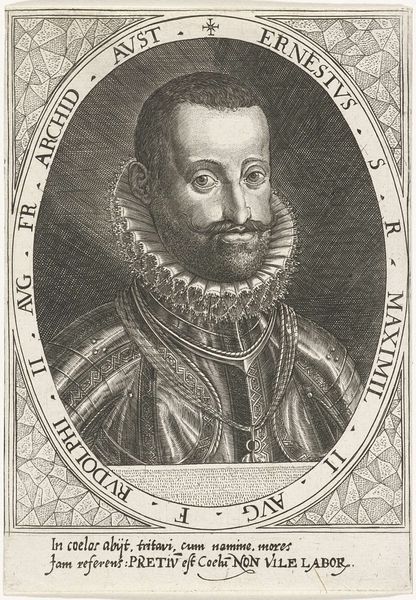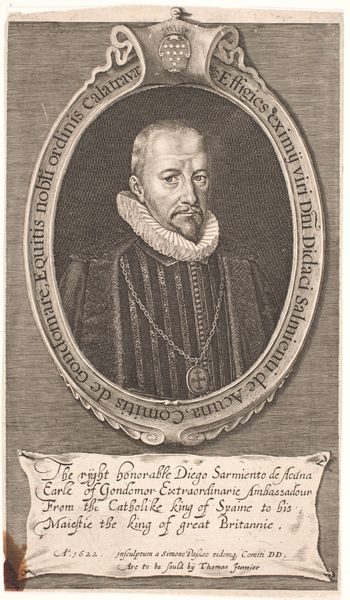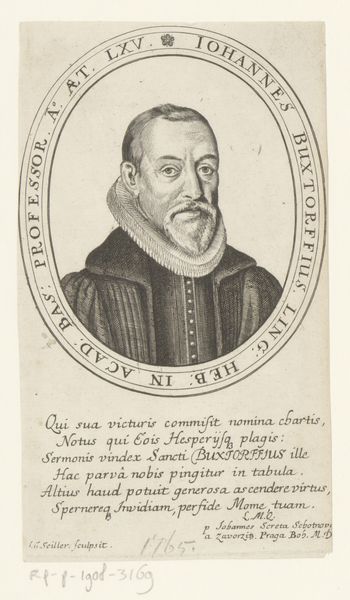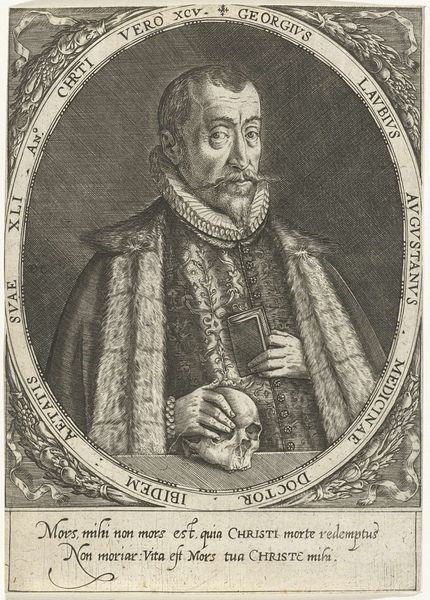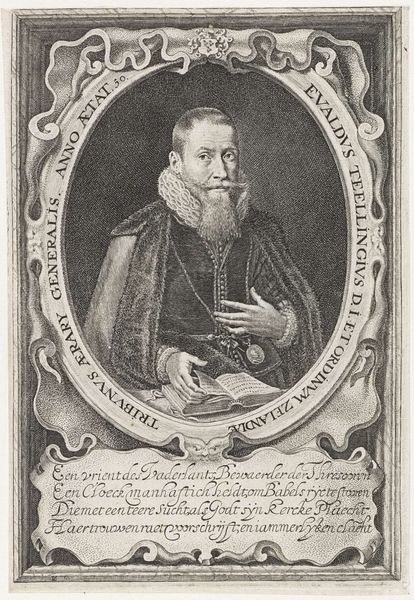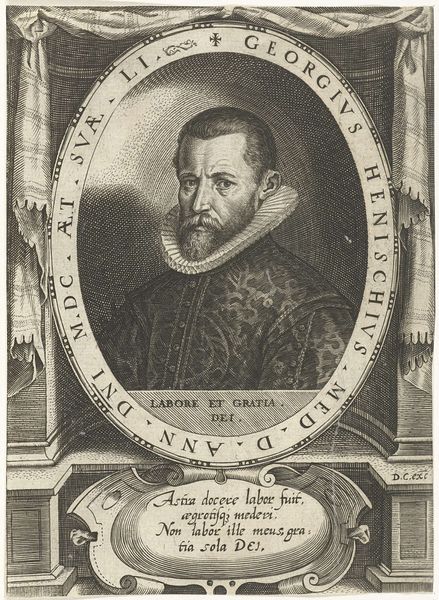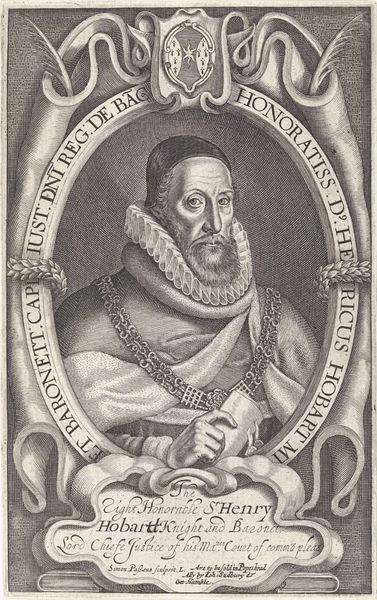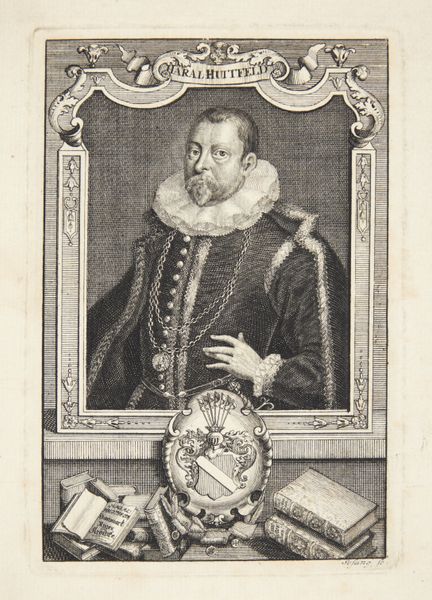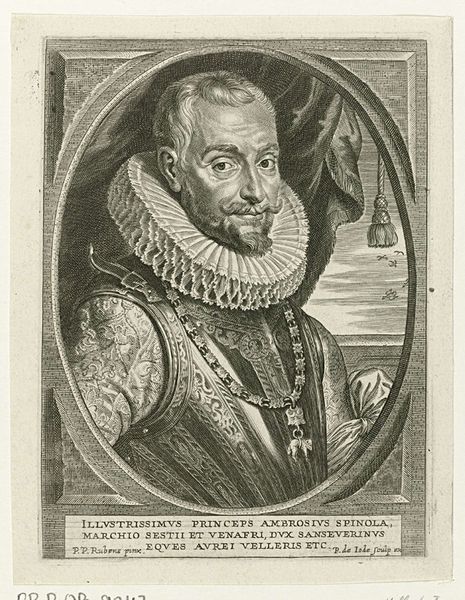
print, engraving
#
portrait
# print
#
old engraving style
#
11_renaissance
#
history-painting
#
northern-renaissance
#
engraving
Dimensions: height 178 mm, width 123 mm
Copyright: Rijks Museum: Open Domain
Simon van de Passe made this portrait of Thomas Egerton, probably in the 1610s, using engraving. This process involves cutting lines into a metal plate, inking it, and then pressing paper against it to transfer the image. It’s a mechanical process, capable of producing multiple identical images. Consider the material reality of the print. It's made of paper, a relatively cheap material. The lines are finely rendered, made with precise tools, and printed to a consistently high standard. This required skill and organization of labor; printmaking in the 17th century was an early form of mass media. This portrait would have been relatively affordable, an accessible way to disseminate the image of an important man. As a result, the sitter gains social power through the very act of being reproduced and distributed. Looking at this print, we can see the connections between materials, making, and social context. It shows how the world of craft was completely interwoven with the rise of politics, labor, and power.
Comments
No comments
Be the first to comment and join the conversation on the ultimate creative platform.
